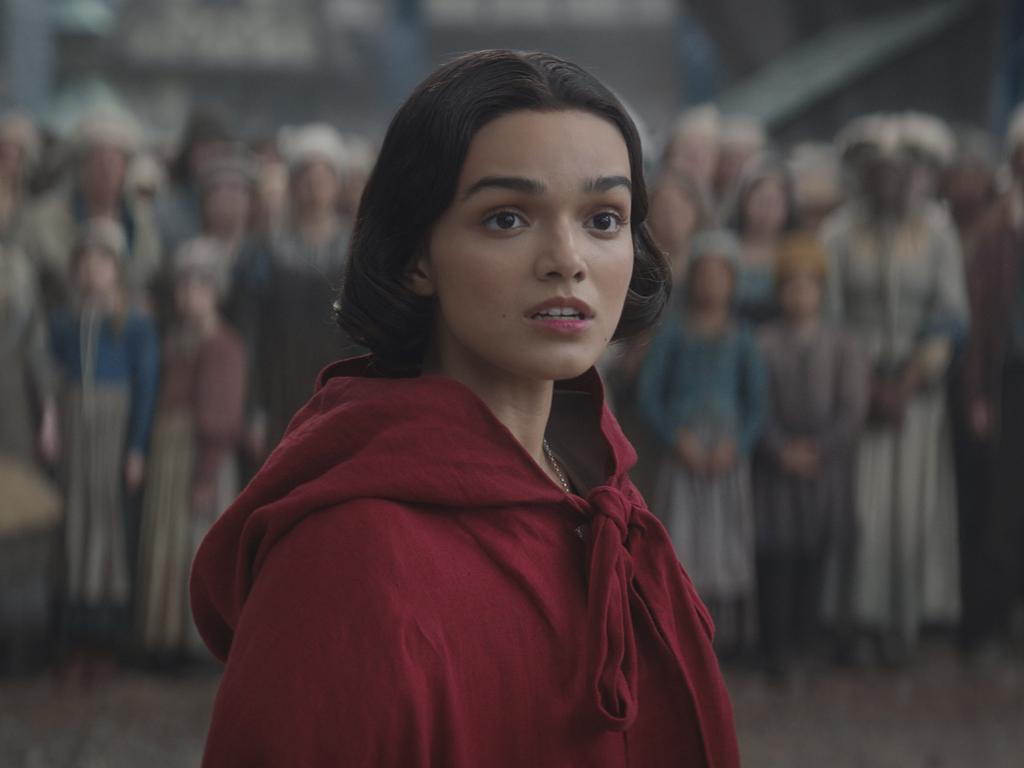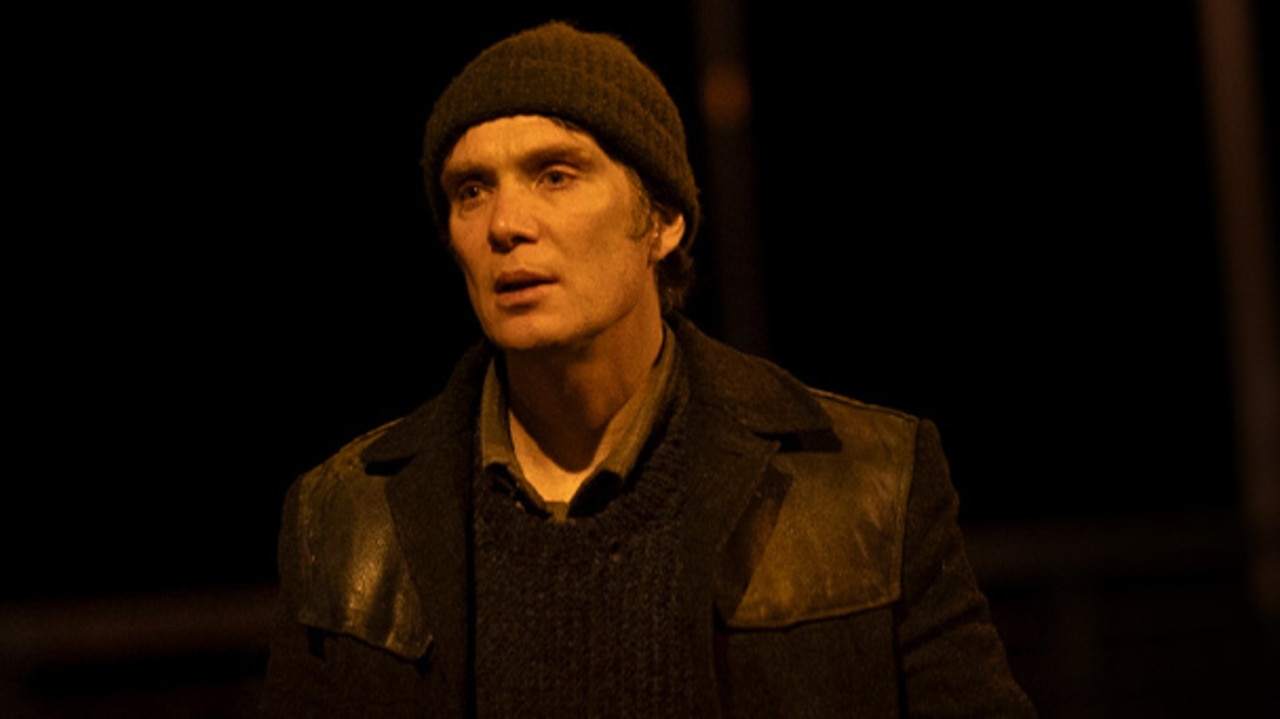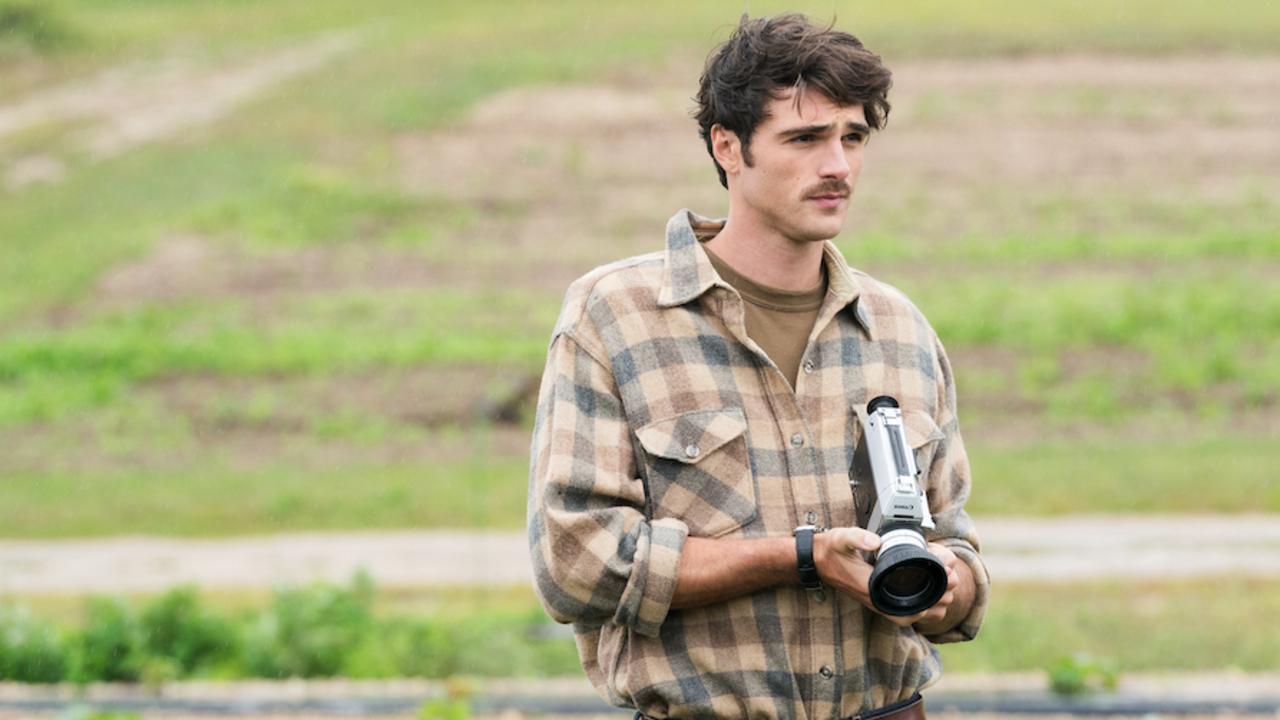The one thing missing from the Crocodile Dundee doco
While it deals with the famous knife scene, Love of an Icon fails to capture these important details of Paul Hogan’s personal life.

Love of an Icon: The Legend of Crocodile Dundee (PG)
90 minutes
In cinemas
★★★
Delvene Delaney describes Love of an Icon: The Legend of Crocodile Dundee as “an act of love”. The widow of John Cornell, the business brain behind the larrikin Paul Hogan, is co-writer/director of this documentary alongside Victoria Baldock.
It is a love letter: to her husband, who was the slow-on-the-uptake Strop on the Paul Hogan Show (1973-84), Hogan himself, who is interviewed, and the ocker Australia encapsulated in the 1986 film they made together, Crocodile Dundee.
It celebrates Australia’s most commercially successful film, the “shrimp on the barbie” nation that made it and the people who led it, such as then prime minister Bob Hawke.
Almost everyone involved is interviewed, either for the film or via the archives. There are nostalgic nods to Australia’s 1983 triumph in the America’s Cup and Kerry Packer’s game-changing World Series Cricket.
Its strength is the behind-the-scenes footage, the scribbled-on scripts and other filmmaking paraphernalia drawn from Cornell’s personal archive.
Combined with the interviews, this visual material offers entertaining insights into how the unexpected blockbuster was made.
Delaney reveals how the famous “That’s not a knife” scene came to be.
John Brown, federal arts minister at the time, explains how he paved the way for American actor Linda Kozlowski to play the female lead despite strong objections from Actors Equity. He used a ploy Scott Morrison would replicate during his time at the Lodge.
Another strength is the acknowledgment of the cinematographer, Russell Boyd, who was a name at the time and would go on to win an Oscar for Peter Weir’s Master and Commander (2003).
The director, Peter Faiman, had worked only in television, with the likes of Graham Kennedy and Don Lane. Cornell and Hogan, too, were feature film debutants. It was Boyd, Faiman says, who put “the magic on the screen”.
This documentary has been released ahead of a 4K restoration of the film due to hit cinemas on May 8 (aka Mate). Crocodile Dundee: The Encoure Cut also includes edits that remove jokes that, shall we say, are well past their use-by-date.
That decision goes to an aspect of this movie that is worth noting. Like most love letters, it accentuates the positive and omits the negative. Hogan’s personal life, including leaving his wife for his co-star, and business interests receive scant coverage.
While his “Come Say G’Day” tourism campaign is identified as a precursor to exciting Americans in Australia and Crocodile Dundee, another of his well-known advertising slogans, “Anyhow have a Winfield”, is not mentioned.
At one point Hogan says that when he was promoting the film in the US, fans believed he was Mick “Crocodile” Dundee, not an actor playing a role. That perhaps is the message of this documentary. For a while, in the mid-1980s, Australia was Crocodile Dundee.
The Day the Earth Blew Up: A Looney Tunes Movie (PG)
90 minutes
In cinemas
★★★
The slapstick animation The Day the Earth Blew Up does feature a UFO and an arrogant alien who wants to conquer the earth but the threatened explosion is not what one expects. The culprit here is chewing gum. “How do we undo the chew?” Daffy Duck asks at a pivotal point.
The alien (voiced by Peter MacNicol), a jittery Golem who uses the word “precious”, has infected bubble gum with a living organism, complete with one eyeball. Anyone who chews the gum becomes a zombie.
This is the start of his plan to make the people of “this helpless little planet” bow to “my superior intellect”. This imperious, insecure extraterrestrial quickly became my favourite character.
Out to save the world are Daffy Duck and Porky Pig (each voiced by Eric Bauza), who have been together since birth, and Petunia Pig (Candi Milo), a rebel scientist at the bubble gum factory.
This is the first feature film based on a Looney Tunes cartoon series that started in 2020. It is directed by series creator Peter Browngardt. His series is in turn based on the original Looney Tunes cartoons from the 1930s.
Anyone old enough to know Porky Pig from Peppa Pig will appreciate the nostalgic look back at how cartoons used to be. The animation is modern but the jokes are from another time. The plot is a deliberate nod to 1950s sci-fi.
At the same time, there are clever updates, such as Porky stepping on a studded building block made by a competing franchise, and an attempt by Daffy and Porky to become digital influencers.
Younger viewers – this movie is timed for the upcoming school holidays – will enjoy the hijinks between the mischievous Daffy and the stuttering Porky, which often result in old-fashioned explosions.
A scene, presented as a Looney Tunes cartoon, where they are fired from a succession of jobs, is a comic highlight. When it comes to their employment prospects it is a matter, to quote the Looney Tunes sign off, of “That’s all folks.”







To join the conversation, please log in. Don't have an account? Register
Join the conversation, you are commenting as Logout